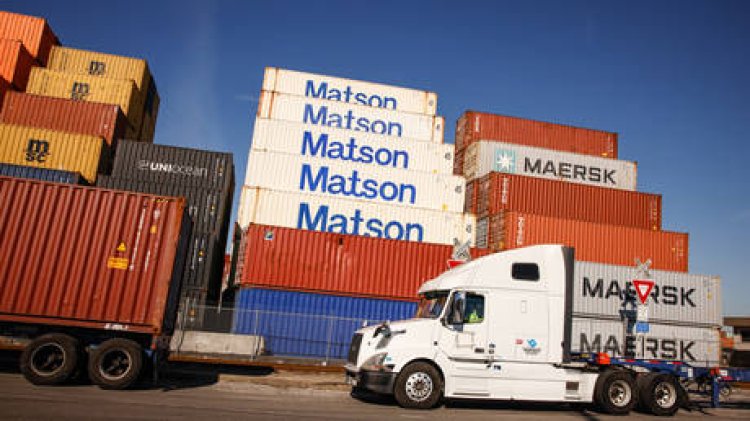A 'blow' to the global economy: International figures respond to Trump's widespread tariffs
The U.S. president has imposed tariffs ranging from 10% to 49% on nearly all of the nation's trading partners. On Wednesday, U.S. President Donald Trump launched a significant new round of "reciprocal tariffs" as part of his "Liberation Day"...

On Wednesday, U.S. President Donald Trump launched a significant new round of "reciprocal tariffs" as part of his "Liberation Day" initiative, raising concerns about the potential for a global trade war.
Trump announced that tariffs would be levied on all countries based on the principle of reciprocity, declaring it a day of economic independence for the United States. He expressed that the tariffs would bolster U.S. manufacturing and would “make America wealthy again.”
In response to the announcement, many countries expressed their disappointment and pledged to retaliate. A base tariff of 10% was implemented across the board, but numerous major U.S. trading partners faced much higher rates.
China
Identified by Trump as one of the “worst offenders,” China received a new 34% tariff on its goods, adding to an existing 20% duty, bringing the total to at least 54%. The U.S. action disregards the balance of interests established through years of multilateral trade negotiations and fails to acknowledge that the country has significantly benefited from global trade, according to a Thursday statement from the Chinese Commerce Ministry.
“China firmly opposes this and will take countermeasures to safeguard its own rights and interests,” the ministry stated.
“There are no winners in trade wars, and there is no way out for protectionism. China urges the U.S. to immediately lift unilateral tariffs and properly resolve differences with its trading partners through dialogue on an equal footing,” it added.
Canada
Canada, already facing U.S. tariffs, was exempted from the additional 10% baseline tariffs due to its membership in the U.S.-Mexico-Canada Agreement. The influence of last week’s “extremely productive” call between Trump and Canadian Prime Minister Mark Carney regarding this decision remains uncertain. Last month, Trump imposed a 25% tariff on Canadian goods and a 10% tariff on energy products, citing concerns related to drugs and migration. Exceptions are in place for importers who can prove their products comply with USMCA.
Carney remarked that while Trump maintained key elements of the Canada-U.S. commercial relationship, the tariffs on steel, aluminum, and automobiles would still go into effect.
“We are going to fight these tariffs with countermeasures, we are going to protect our workers, and we are going to build the strongest economy in the G7,” Carney said.
Mexico
Mexico, another significant U.S. trade ally, also escaped Trump’s universal tariff. Previously, Trump had imposed 25% tariffs, citing migration and fentanyl trafficking issues but later exempted U.S.-Mexico-Canada Agreement-compliant goods.
Mexican President Claudia Sheinbaum stated that the country does not plan to impose retaliatory tariffs on the U.S., emphasizing that it will “announce a comprehensive program, not a tit-for-tat on tariffs.”
“Let’s see what announcement they make, but we have a plan to strengthen the economy under any circumstance,” Sheinbaum added.
EU
European Commission President Ursula von der Leyen called the universal duties a “major blow to the global economy.” She warned that a new 20% U.S. tariff on the EU would lead to “uncertainty spiral,” causing “dire” consequences “for millions of people around the globe.” Von der Leyen warned that the move would “trigger the rise of further protectionism” and indicated that the bloc is prepared to respond.
“If you take on one of us, you take on all of us,” she stated.
European Council President Antonio Costa echoed her sentiments, asserting that a trade war between the EU and the U.S. would “affect everyone,” labeling Trump’s decision as a “major economic mistake.”
Italian Prime Minister Giorgia Meloni, a close Trump ally, criticized the decision as “wrong” but expressed her commitment to negotiating a deal with the U.S. to “prevent a trade war.”
In Germany, Economy Minister Robert Habeck condemned the U.S. “obsession” with tariffs, warning it “could put a spiral in motion that can tear countries into recession.”
French President Emmanuel Macron plans to convene representatives from all affected business sectors, as producers assess potential losses. French wine and spirits sales are projected to drop by at least 20% in the U.S., according to the spirits exporters group FEVS.
“We are indeed going to see an adverse effect on production,” said French government spokeswoman Sophie Primas. Trump “thinks he is the master of the world,” she commented, but the EU is “ready for this trade war” and possesses a “whole range of tools.”
The sweeping tariffs are expected to jeopardize jobs on both sides of the Atlantic, according to Irish Taoiseach Micheal Martin, who deemed the actions unjustified. Goods from Ireland will incur a 20% tariff due to Trump’s measures on the EU.
“More than €4.2 billion worth of goods and services are traded between the EU and the U.S. daily. Tariffs drive inflation, hurt people on both sides of the Atlantic, and put jobs at risk,” Martin stated.
UK
Britain faced a less severe impact with a 10% duty on its exports. Prime Minister Keir Starmer remarked that “nobody wins in a trade war” and pledged to “fight for the best deal for Britain.” He emphasized that there’s a “range of levers at our disposal” while still aiming to secure a deal with the U.S.
Japan
Japanese officials voiced “serious concerns” about the alignment of Trump’s tariffs with the WTO agreement and the Japan-U.S. trade deal. Prime Minister Shigeru Ishiba released a statement emphasizing these worries. Japanese Trade Minister Yoji Muto described the actions as “extremely regrettable,” saying that all options were being considered. When asked if Japan would retaliate against the 24% tariff from the U.S., he stated, “We need to decide what is best for Japan, and most effective, in a careful but bold and speedy manner.”
Israel
According to local media reports, economic officials in Israel, a key U.S. ally, reacted with “complete shock” to the 17% tariff imposed by Trump. The country had eliminated all tariffs on American imports beforehand to secure exemption from new levies. “We are working to understand the motivation behind this move,” commented Ron Tomer, president of the Manufacturers Association of Israel.
Ukraine
The newly introduced 10% tariff on Ukrainian imports was described by Daniil Getmantsev, head of the Ukrainian Parliament’s Finance Committee, as “economic cynicism.” He noted that the levy is unlikely to adversely affect Ukraine given its modest exports to the U.S.
“But imposing such tariffs when our trade balance with the U.S. shows a $2.6 billion deficit is, frankly, economic cynicism of the highest order,” he remarked.
Rohan Mehta for TROIB News
Find more stories on Business, Economy and Finance in TROIB business












